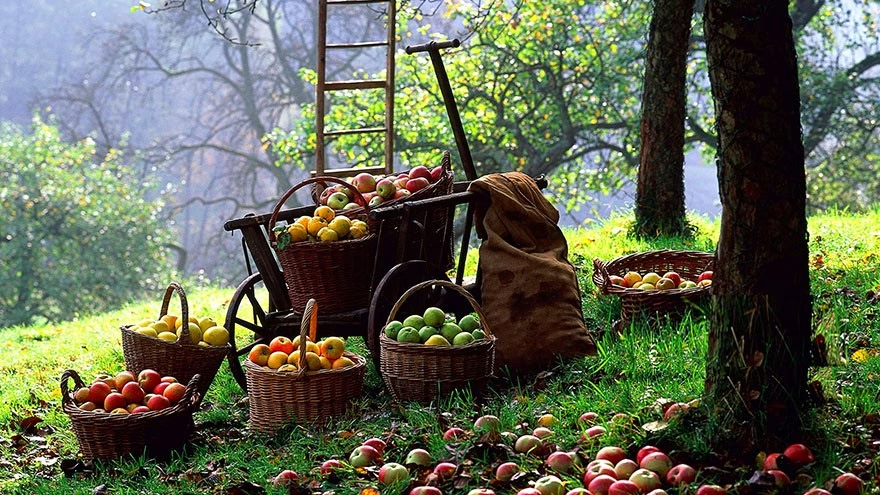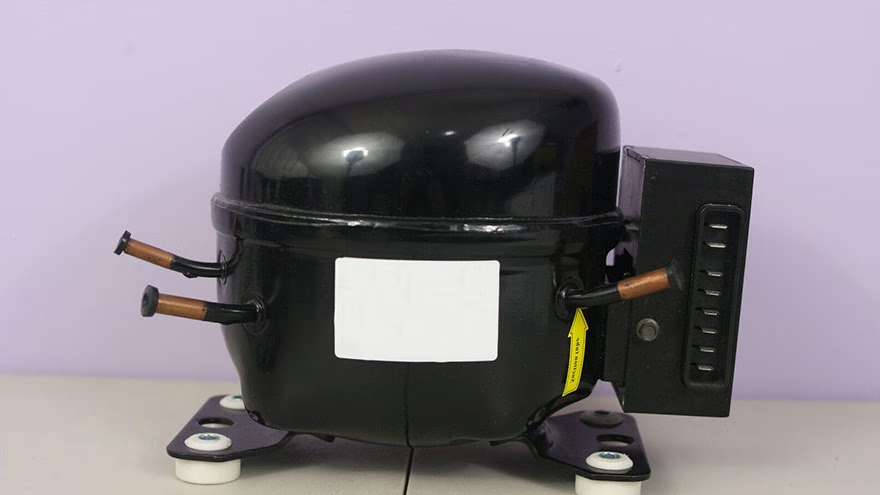Today, the U.S. grows 2,500 of the 7,500 varieties of apples available worldwide.
While you can purchase apples in the grocery store all year round, autumn is still considered apple time, and your best bet at purchasing the freshest apples is to shop between September and November.
And shop (and eat) you should. "An apple a day keeps the doctor away," that famous old saying, appears scientifically correct. Modern studies show apples help prevent asthma, protect against colon and breast cancers, prevent kidney stones, help lower poor cholesterol, and raise good cholesterol.
Apples are only about 81 calories a piece, have around 13% of the recommended daily dose of vitamin C, and about 15% the recommended daily dose of fiber.
Apples are not only excellent snacking, they are ideal for every meal: pancakes with apple topping, sandwiches with apple filling, a myriad of fantastic dinners and desserts. For some creative ways to cook with apples, check out Our Deer's apple recipes.
Choosing Apples
Fresh ingredients are the best ingredients, so if you can buy apples locally at a farm or farmer’s market, take advantage of the opportunity. Unlike many grocery store apples, the fruit won’t be picked too early, and should be fresher.Select firm apples, but as long as there are no brown spots or discoloration (which may indicate the apples are rotting), don’t fuss over imperfections.
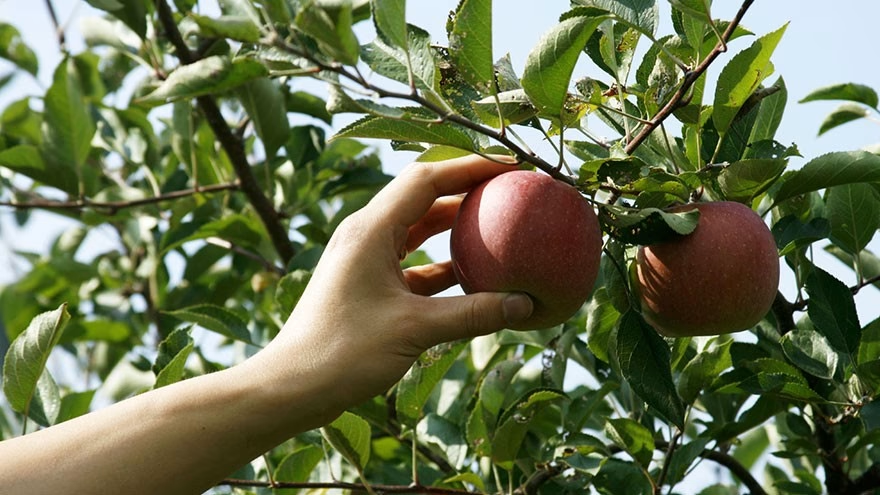
There are a huge variety of apples, and while they all may be delicious, some types are more appropriate for certain types of cooking. For salads, Red Delicious and Gala are excellent choices. For applesauce, consider Gravenstein, McIntosh, Pippin, Granny Smith, or Golden Delicious.
For pies and tarts, Golden Delicious, Pippin, or Granny Smith are popular choices. For baking whole, try Rome Beauty, Golden Delicious, or Jonagold.
If you desire sweet apples, consider Red Delicious, Golden Delicious, Gala, or Jonagold. For tart apples, select Granny Smith, McIntosh, or Jonathan. And for apples somewhere in between tart and sweet, try varieties like Rome Beauty, Winesap, Gravenstein, or Jonagold.
Storing Apples
Apples last longer if they are kept cool, so store then in the refrigerator in the crisper or a basement or cellar. Bear in mind that apples eventually absorb the odors around them.Apples also release ethylene gas, which speeds the ripening of other fruits, so don’t store them near produce that ripens quickly, like pears, peaches, or kiwi.
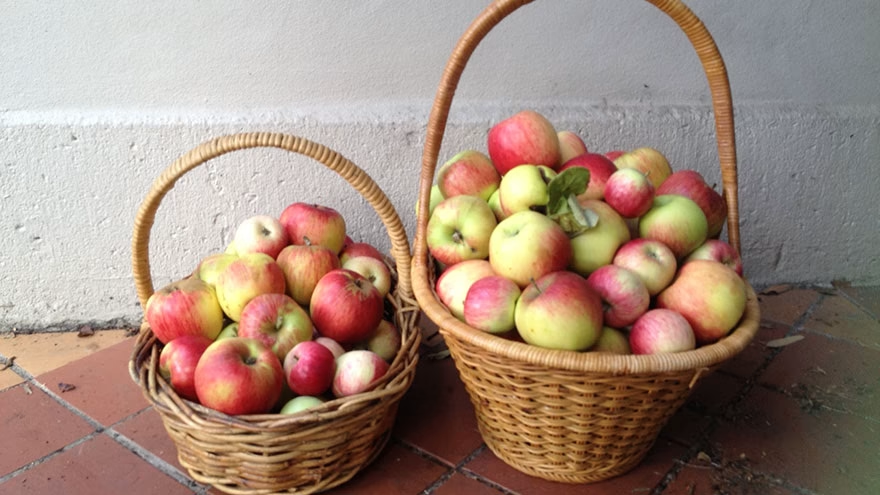
Preparing Apples
Before consuming or cooking with apples, wash them in warm water and soap. This will eliminate most chemicals and reduce the risk of food poisoning due to E. Coli.If you want to ensure apples don’t turn brown as you work with them, dip or spray them in a little lemon juice.
If you’ll be peeling or coring apples in any number, an old fashioned, hand cranked apple peeler/corer is a must. Otherwise, use a paring knife to remove the apple skin, and a hand held apple corer.
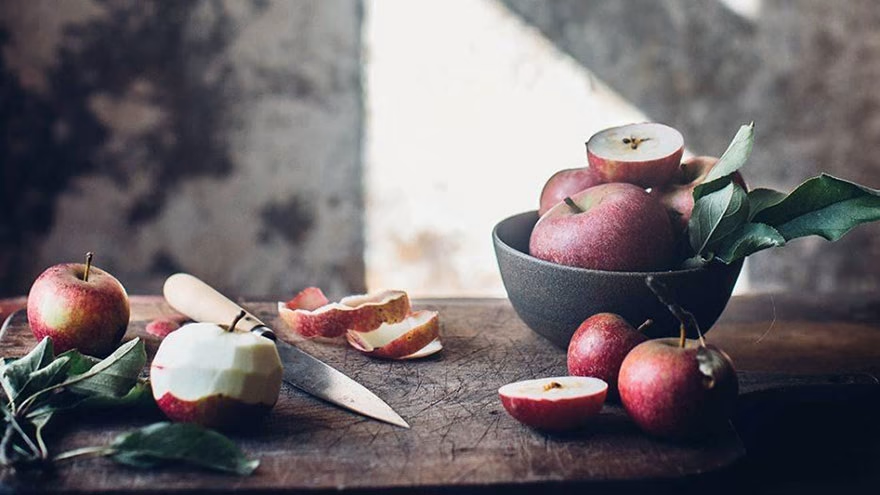
To use a corer, simply line up the tool with the center of the core, where the stem is, then press down. Always peel before you core, since cored apples break apart more easily when handled.
Check out the video version of this article on YouTube : Choosing, Storing And Preparing Apples
httpv://www.youtube.com/watch?v=uHwY1i5VN4A
Save for later
Found this helpful?
Pin this article to your Pinterest board and come back to it whenever you need a reminder.
Save to Pinterest